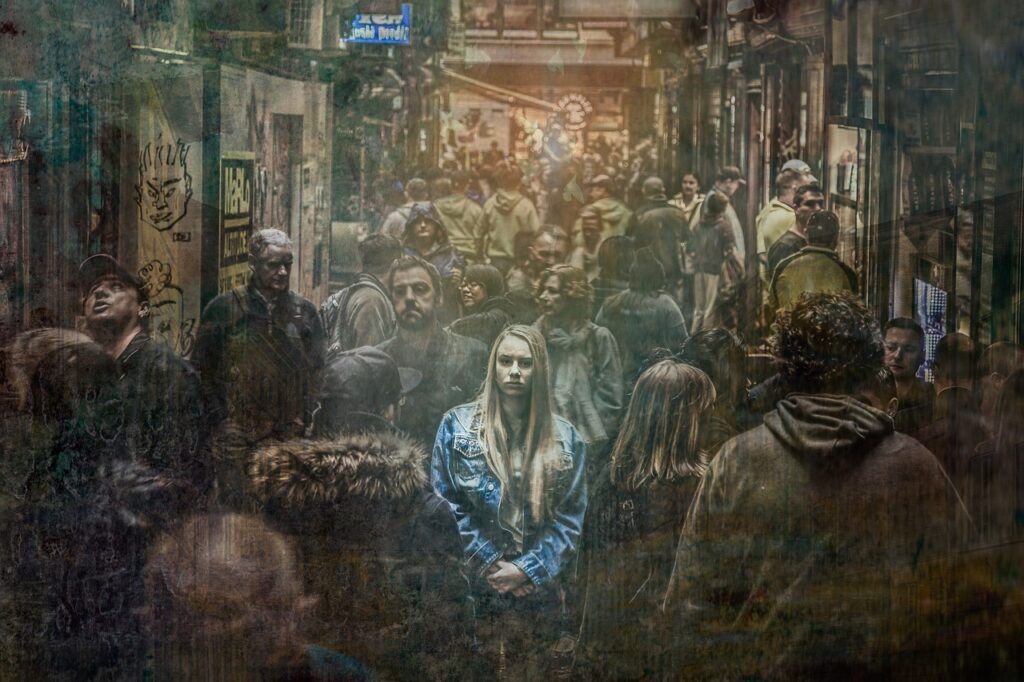
Why People Suffer from Depression and Anxiety in the US: The United States, a country frequently associated with opportunity and prosperity, is facing a troubling reality: an increasing number of its inhabitants are experiencing anxiety and despair. This story isn’t about personal frailty; rather, it’s about the intricate interactions between social, economic, and neurological variables that have a lasting impact on the American experience. Let’s examine the underlying factors that lead to this occurrence in more detail, paying particular attention to the health implications of anxiety and sadness.
Why People Suffer from Depression and Anxiety in the US: The Crushing Weight of Isolation
Traditionally, the American Dream has placed a strong emphasis on independence and individualism. This encourages initiative, yet it can also lead to isolation. How to do it is as follows:
- Weakening Social Bonds: Loneliness is exacerbated by long work hours, the loss in extended family living arrangements, and community atomization.
- The Double-edged Sword of Social Media: Social media, which is frequently hailed as a tool for connecting people, can also make isolation worse by encouraging irrational comparisons and curating a reality that is more closely aligned with one’s own feelings of inadequacy.
The Medical Connection
Why People Suffer from Depression and Anxiety in the US: The Medical Connection
- Medical Connection: The brain’s reward system may be significantly impacted by social isolation.
- Disrupted Dopamine Release: Dopamine is a neurotransmitter linked to sensations of pleasure and reward. Since humans are social animals, good social interactions cause the release of dopamine. This system is upset by prolonged isolation, which can result in feelings of loneliness and might hasten the onset of anxiety and depression.
Why People Suffer from Depression and Anxiety in the US: The Financial Juggling Act
The cost of chasing the American Dream is frequently high. Anxiety and sadness are exacerbated by pressure to lead a particular lifestyle:
- The Burden of Debt: A lot of Americans are caught in a never-ending cycle of financial distress due to student loans, medical expenses, and the rising cost of living.
- Precarious Employment: People are more stressed out and continuously concerned about their next income as a result of the gig economy’s shift and the decline in traditional occupations that provide long-term stability.
The Medical Connection
Why People Suffer from Depression and Anxiety in the US: The Medical Connection.
- Money stress sets off the body’s “fight-or-flight” response.
- The Disruption of Cortisol: Stress hormones such as cortisol are released in response to financial stress. Serotonin and norepinephrine, which are both essential for mood modulation, are specifically affected when neurotransmitter regulation is disrupted by persistently high cortisol levels. Depression and anxiety disorders may arise as a result of this disturbance.
The Cult of Productivity: When Busyness Becomes a Badge of Honor
Why People Suffer from Depression and Anxiety in the US: American culture glorifies busyness, creating a breeding ground for mental health struggles:
- The “Hustle” Mentality: An unrelenting pursuit of productivity leaves little time for leisure, relaxation, or reflection as there is always pressure to produce more. People get the impression that they are never quite good enough.
- The Toll of Burnout: Burnout is a state of emotional, bodily, and mental tiredness brought on by the continual need to remain “on”. People who experience burnout are less able to handle stress, which increases their vulnerability to anxiety and depression. Furthermore, the exaltation of work fosters a society in which asking for assistance is viewed as a sign of weakness.
The Medical Connection
One prevalent effect of the “hustle” culture is chronic sleep deprivation, which throws off the body’s stress response system:
Disregulation of the Hypothalamic-Pituitary-Adrenal (HPA) Axis: The HPA axis is a complicated mechanism that regulates the body’s stress response. It is disrupted when sleep is deficient. This disturbance adds to elevated anxiety and trouble controlling feelings.
Inflammation and Burnout: Inflammation has been connected to the onset of depression and can result from burnout on many levels of the body.
Why People Suffer from Depression and Anxiety in the US: A Path Forward
Why People Suffer from Depression and Anxiety in the US: In order to combat the growing prevalence of anxiety and depression, a multifaceted strategy incorporating social, economic, and medical factors is needed. Here are a few strategies for moving forward:
Social Connection: Encouraging a better work-life balance and deeper social ties through neighborhood projects.
Financial Wellness: To lessen the weight of financial concerns, financial literacy programs and debt reduction programs should be put into place.
Destigmatizing mental health entails promoting candid discussions about it and eradicating the stigma associated with it.
Accessible Care: Ensuring individuals who are struggling receive the necessary support by making mental healthcare more inexpensive and accessible.
Healthy Habits: Encouraging regular exercise, stress reduction methods, and healthy sleeping habits to enhance mental health.
Social Cohesion: Building an atmosphere of compassion and understanding to heal the social divisions that exacerbate distress and make society more
The pursuit of opportunity and pleasure is at the heart of the American Dream. Through tackling the biological, social, and economic elements that lead to anxiety and despair, we may establish a community in which the goal is actually attainable.